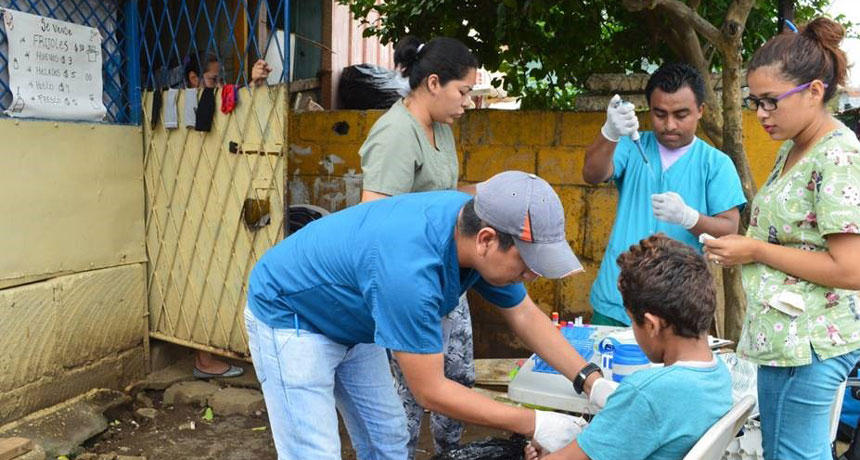Human study supports theory on why dengue can be worse the next time around

Et tu, antibody? In humans, dengue can be more severe the second time around. Now, a study implicates an immune system treachery as the culprit.
The study suggests that the amount of anti-dengue antibodies a person has matters. In a 12-year study of Nicaraguan children, low levels of dengue antibodies left over in the blood from a prior infection increased the risk of getting a life-threatening form of the disease the next time around, researchers report online November 2 in Science.
Four related viruses cause dengue. The theory that antibodies protective against one type of dengue can collude with a different type of the virus to make a second infection worse was proposed in the 1960s. Such antibody-dependent enhancement has been shown in cells and lab animals. But “there’s been this controversy for five decades about, does this antibody-dependent enhancement really happen in dengue” in humans, says coauthor Eva Harris, a viral immunologist at the University of California, Berkeley’s School of Public Health. “And this says, yes, it does.”
About 2.5 billion people live where there is a risk of dengue infection. The virus infects 50 million to 100 million people every year, the World Health Organization estimates, but many cases go unreported. Infection with the mosquito-transmitted virus often leads to no symptoms, but can cause fever, joint and muscle pain and other flulike symptoms. The most severe form, which affects about half a million people annually, can include internal bleeding, respiratory distress or organ failure, and may be fatal.
Getting sick with one of the four virus types can protect against a future infection of the same type. But in some cases, the theory goes, leftover antibodies from the first illness can actually help the second infection invade cells, increasing the risk of severe dengue disease.
“This study provides support for this idea that antibodies under certain conditions can be bad and actually cause severe disease when people are infected with dengue,” says viral immunologist Sujan Shresta of the La Jolla Institute for Allergy and Immunology in California. The next step, she says, is to learn more about the antibodies involved and see whether the findings hold up in other populations.
From 2004 to 2016, Harris and her colleagues studied more than 6,500 children aged 2 to 14 in Managua, Nicaragua. The researchers took blood samples each year, at a time when the kids were healthy, and assessed their antibody levels. The scientists also monitored which kids developed dengue and how severe the disease was.
An analysis showed that kids with a specific low range of anti-dengue antibodies had around a 7½ times higher risk of developing the most severe form of the disease than those who had either no antibodies or a high amount. The team’s test couldn’t tell what kind of dengue antibodies each child had. Harris and colleagues are now working on characterizing the antibodies measured in their test, to learn what makes them protective or harmful.
The new study supports the theory of antibody-dependent enhancement in humans, says Anna Durbin, an infectious diseases physician at Johns Hopkins Bloomberg School of Public Health. But she also argues that the risk of developing severe disease depends on the quality of the antibody — that is, how potent it is — as much as, or more than, the quantity. “A number in and of itself doesn’t tell you a whole lot.”